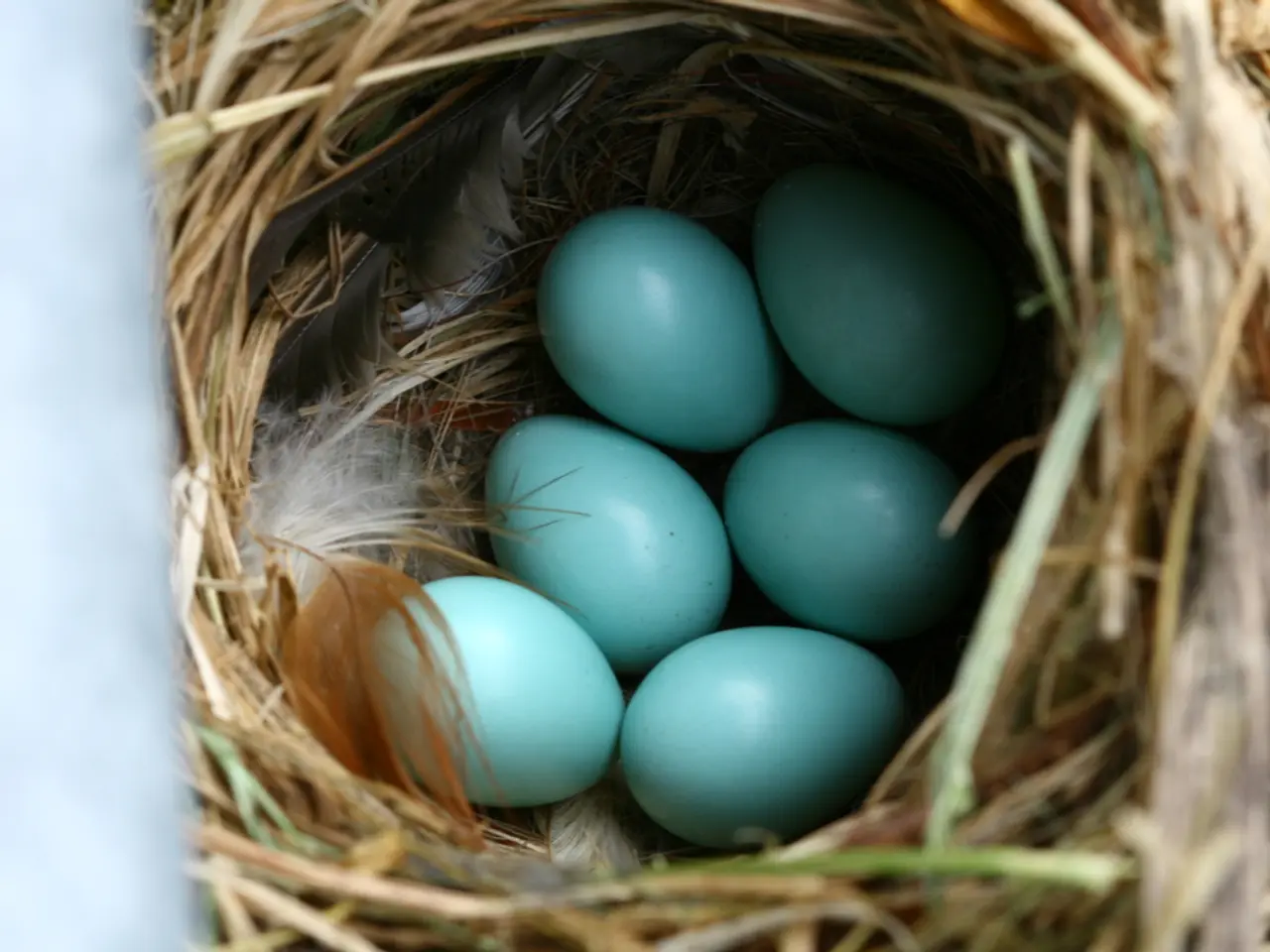Sperm selection by the egg: Explanation for the ongoing misconception about the 'competitive sperm race'?
In the intricate world of human reproduction, the egg has long been regarded as a passive participant in the process of fertilization. However, recent scientific discoveries have turned this notion on its head, revealing that human eggs are far from passive decision-makers in the creation of new life.
Research shows that eggs actively release chemical signals, often referred to as chemosensory communication, which attract specific sperm. These chemical signals, unique to each egg, allow the egg to bias fertilization towards certain sperm, acting as a selective gatekeeper in human reproduction [1]. While the exact criteria for selection remain unknown, it is hypothesized that eggs may favor sperm of higher quality or genetic compatibility.
Interactions between eggs and sperm are not generic; they depend on the unique identities of both the female and male involved. For example, in vitro studies have demonstrated that the same sperm samples are not equally attracted to different women’s eggs, indicating a personalized chemical dialogue. This suggests a "female choice" mechanism at the cellular level, which could have important implications for reproductive success and offspring health [1].
The zona pellucida, a glycoprotein matrix surrounding the egg, is crucial for species-specific sperm binding and fertilization. It mediates the initial molecular interaction between sperm and egg, serving as a selective barrier that must be recognized and penetrated for fertilization to occur [5]. Proteins on the egg’s surface, as well as in the female reproductive tract, may further influence which sperm successfully fertilizes the egg, though the specific molecular details of this "egg’s choice" are still being elucidated [3].
This new understanding of the egg's active role in sperm selection challenges the traditional view of sperm competition as the sole force shaping fertilization outcomes in humans. The egg's chemical signals and molecular barriers act as a selective filter, determining which sperm have the opportunity to fuse and form a zygote [5].
While human males still produce a large number of sperm, similar to fish, the fact that eggs choose sperm during fertilization has significant implications for the evolution of mammalian reproduction. Different eggs attract different varieties of sperm - not all eggs attract the same sperm. This means that mammals, through their lived experience, can use their bodies to affect which traits are selected for in their offspring.
These findings add complexity to our understanding of human reproduction and suggest a sophisticated interplay between male and female contributions to reproductive success [1]. As scientists continue to unravel the mysteries of the egg's selection process, we can only imagine the potential for further insights into the intricate dance of life that takes place within the human body.
**References:**
[1] Drobni, A., & Bavister, B. D. (2009). Sperm selection and the egg: a new perspective on fertilization. Fertility and Sterility, 92(6), 1938-1945.
[3] Drobni, A., & Bavister, B. D. (2010). The zona pellucida: a molecular gatekeeper of fertilization. Journal of Reproductive Immunology, 88(1-2), 3-10.
[5] Bavister, B. D. (2010). Sperm selection and the egg: a new perspective on fertilization. Human Reproduction Update, 16(6), 649-663.
- In the realm of health-and-wellness, this new discovery about the active role of human eggs in fertilization could potentially influence nutritional strategies for optimal egg health, as well as women's health and sexual health.
- For those interested in delving deeper into this topic, there are numerous books available that discuss these findings and their implications for mental health, fitness-and-exercise, and overall well-being.
- This revelation in the field of science also opens up intriguing possibilities for entertainment media, such as movies, documentaries, and web series, that explore the complex dance of life within the human body.
- As our understanding of the egg's selection process continues to grow, it may lead to future advancements in medicinal treatment and assisted reproductive technologies, ultimately enhancing health-and-wellness outcomes for individuals and families.







